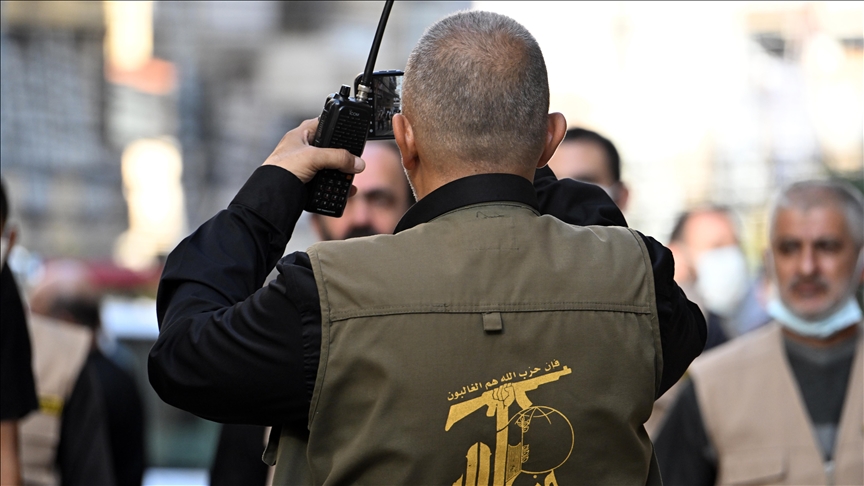Israel planned pager attacks in Lebanon, Syria decade ago, say former Mossad officers
Israel has 'created a pretend world' in which there is an 'incredible array of possibilities of creating foreign companies that have no way of being traced back to Israel,' ex-Mossad agent tells CBS NEWS
 Members of Hezbollah holding walkie-talkies are seen in Dahieh region of capital Beirut, Lebanon on September 22, 2024.
Members of Hezbollah holding walkie-talkies are seen in Dahieh region of capital Beirut, Lebanon on September 22, 2024.
- Israel has 'created a pretend world' in which there is an 'incredible array of possibilities of creating foreign companies that have no way of being traced back to Israel,' ex-Mossad agent tells CBS NEWS
- To ensure their 'success' and convince Hezbollah to buy, Mossad also created fake advertisements promoting pagers as durable, long-lasting, and dustproof, says another operative
ISTANBUL
Two former Israeli intelligence agency operatives have admitted that Mossad "controlled every aspect of the operation from behind the scenes" during the attacks on Lebanon and Syria in September, primarily Hezbollah, using explosives in messaging device pagers and walkie-talkies.
Planning for the two-day reign of terror, particularly in Lebanon, which killed 30 and injured over 3,000 on September 17 and 18, began a decade ago by weaponizing walkie-talkies, according to former Mossad officers who spoke to CBS News with their names and voices changed and faces covered.
Hezbollah and Iran immediately pointed fingers at Israel for orchestrating the terror attacks, while Tel Aviv has yet to publicly admit responsibility.
Since walkie-talkies are only used on battlefields, Mossad sought to develop a device that Hezbollah could carry at all times—pagers, according to the two operatives, who spoke with CBS News in a program broadcast on Sunday.
One of the agents, Michael, not his real name to hide his identity, claimed Mossad used "shell companies" and manipulated supply chains to sell 5,000 pagers to Hezbollah by Sept. 2024 without the Lebanon-based group realizing the devices were made in Israel.
Michael said Israel has "created a pretend world" in which there is an "incredible array of possibilities of creating foreign companies that have no way of being traced back to Israel.”
The pagers were modified to conceal explosives that detonated when specific buttons were pressed.
To ensure their "success" and convince Hezbollah to buy, Mossad also created fake advertisements promoting the pagers as durable, long-lasting, and dustproof, according to Gabriel, the second agent under the not real name.
He underlined that even if the buttons were not pressed, the devices would still explode with the trigger from Israel.
Gabriel also detailed the “operation’s precision,” claiming that the devices were tested to injure only the target while causing minimal harm to those nearby. "Even if his wife or his daughter will be just next to him, he's the only one that's going to be harmed," Gabriel added.
However, reports from the September 17 explosions contradict this, with two children among those killed.
The following day, Hezbollah members using Mossad-supplied walkie-talkies were also targeted during funerals for pager victims, causing further casualties. Gabriel admitted that the attacks did not destroy Hezbollah but claimed it disrupted their chain of command. “Those people without hands and eyes are living proof, walking in Lebanon, of 'don't mess with us,'” he said.
While Gabriel acknowledged that Hezbollah was not completely destroyed, he said the attacks put it in a "very, very difficult situation," with no chain of command and many of its members injured.
Israel has not officially confirmed or refuted the officers' statements.
Anadolu Agency website contains only a portion of the news stories offered to subscribers in the AA News Broadcasting System (HAS), and in summarized form. Please contact us for subscription options.







